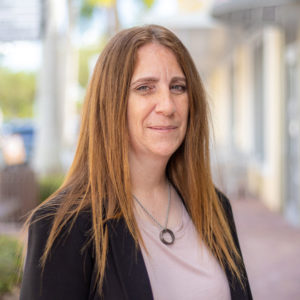When saving to buy a home, many focus on the amount of down payment needed, yet forget to factor in the expenses involved: loan fees, title company fees, government fees, and pre-paid expenses.
Here is a guide to help you understand the “typical” closing costs and pre-paid expenses involved when getting a home loan in Florida. These are only approximations of these fees, so make sure to get an actual estimate based on your specific situation. Click on each item for a detailed description.
Loan Fees
Here are approximations of the “typical” fees paid in connection with a home loan:
This is the fee charged by lender for their administrative and/or underwriting costs. This fee is sometimes built into the interest rate instead of being charged up front.
Lenders will need to pull your credit report to perform a risk analysis. Your credit will tell them how much you currently owe and whether you have paid your debt in a timely manner.
An appraisal determines the fair market value of the home. In some instances, the underwriter may waive the appraisal. You won’t know if the appraisal is waived until your file is run through underwriting with the actual home address. In most cases you should plan on having to pay this fee.
This is a fee charged by a third-party service that continues to update the lender throughout the life of the loan as to whether your property is in a flood zone.
The tax service fee is a fee charged by some lenders to ensure the mortgaged property’s taxes are paid on time every year.
The lender will verify your employment during the loan process and again right before closing to make sure there is no change in your employment. In some cases, a written verification breaking down your income will be required. If your employer outsources the written verification, they may charge you for providing this information. Otherwise, it is typically free.
Title Company Fees
Here are approximations of the typical Title Company fees in Florida that are paid in connection with a home loan:
This is a fee charged by the title company to settle your mortgage transaction.
Florida title insurance rates are set by the state. Title Insurance protects both the buyers and the lenders from fiscal responsibility due to hidden liens associated with the property. The lender’s title policy will protect the lender and the owner’s title policy protects the buyer.
Title insurance endorsements add additional protection by adding or modifying property-specific coverage to the current policy.
This search allows you to find unrecorded liens, code violations, special assessments, and open or expired permits issues that are associated with the property.
This fee covers the cost of the time spent on examining the title for any issues and searching public records.
Covers the cost to send the loan documents to various parties.
Covers the wire transfer fees charged to the title agent for completing your transaction.
Surveys are used to determine property boundaries and identify restrictions and conditions that apply to the legal description of a property. Fees can vary based on the size, type, and location of the property.
Government Fees & Taxes
Typical Government Fees in Florida:
Documentary stamp tax due on a mortgage filed or recorded in Florida. In Florida, the seller typically pays this fee unless you are buying from a builder, in which case, the builder passes this cost on to the buyer.
This is a fee to record the mortgage.
A one-time tax Paid to local government agencies based on the amount of your loan.
A one-time tax paid to the state of Florida based on the amount of your loan.
Pre-Paid Expenses
Pre-paid expenses are collected at closing for upcoming expenses on your home. These include pre-paid interest, homeowners’ insurance, and property taxes.
Mortgage interest is paid in arrears. When you close on your loan, the first payment is typically due a month after your loan funds, at which time you will pay the interest for the previous month. Because if this, they will collect interest from the date of your closing to the end of the current month.
Homeowners insurance policies cover destruction and damage to a residence’s interior and exterior, the loss or theft of possessions, and personal liability for harm to others. The cost varies due to the location, size, structure, and age of the home.
Insurance premiums are paid in advance of coverage. The first year’s premium will be paid at or before closing. In addition, if the lender sets up an escrow account for you, the lender will collect funds and place in escrow to start that escrow account.
If your home is in a flood zone, you may be required to get flood insurance. Flood insurance policies cover destruction and damage to a residence’s interior and exterior due to a flood. The cost varies due to the location of the home, size of home and structure.
Insurance premiums are paid in advance of coverage. The first year’s premium will be paid at or before closing. In addition, if the lender sets up an escrow account for you, the lender will collect funds and place in escrow to start that escrow account. If you are in a flood zone, escrow is required.
In Florida, the county assesses the home and levies a tax based on its value minus any applicable exemptions. Property taxes in Florida are paid in arrears. If property taxes are being escrowed, the amount collected at closing will depend on what month you close in. At closing, the seller will give you a credit for the taxes owed for the portion of the year they owned the home.
The More You Know
Although feeling overwhelmed is a very reasonable feeling after reading through all the additional costs that can be incurred when buying a home, don’t be. Knowledge is power, and you are now one step closer to successfully purchasing a home. Ask your mortgage loan originator to put together an estimate based on your situation.
Something else to keep in mind: there are instances where you can get assistance to cover some of the costs. In some cases, the seller may pay some (or all) of the closing costs and pre-paid expenses if it is negotiated in the contract. Getting the seller to pay these expenses are often dependent on the current market.
There are also options where the lender may give a credit toward closing costs and pre-paid expenses. Some lenders may even offer “No Closing Cost” loans. While this may be a good option for your situation, it is important to note that your rate will most likely be higher to help cover the lender’s cost of paying those expenses. Determining which option is best for you is something your mortgage loan originator can help you work through.





